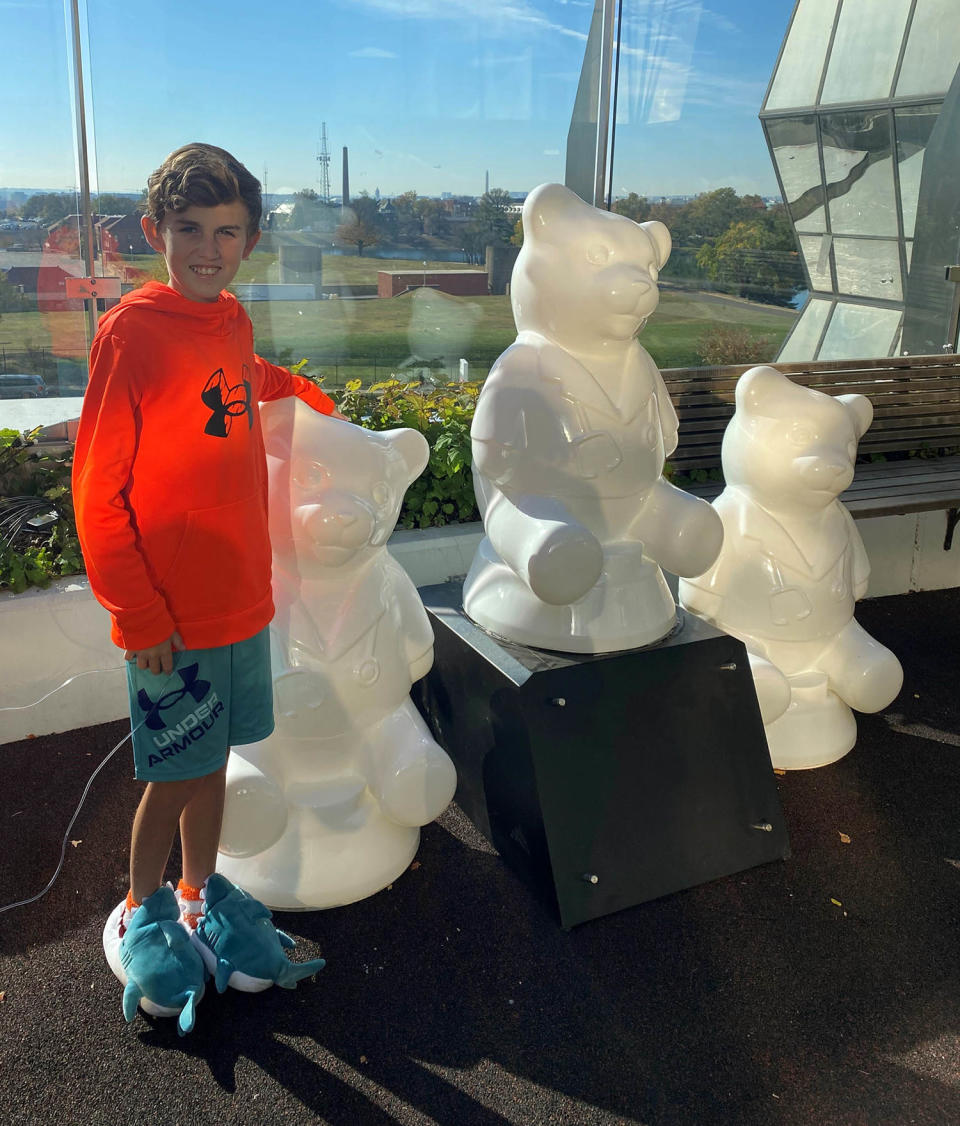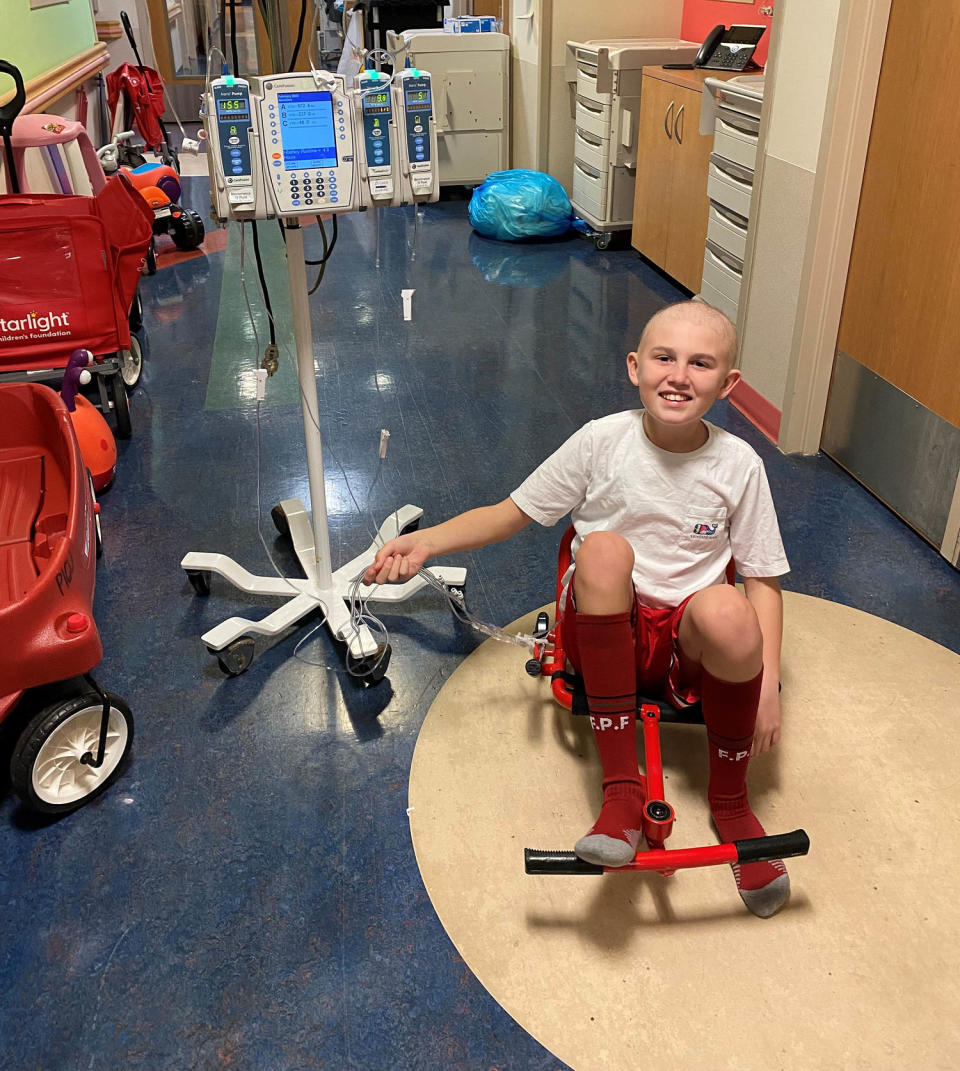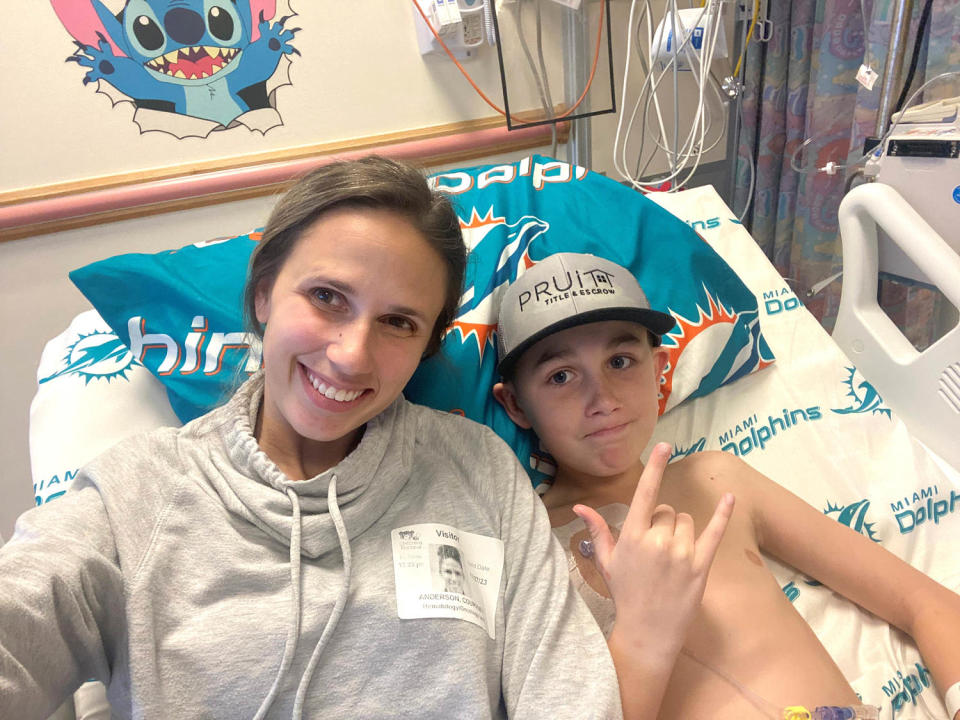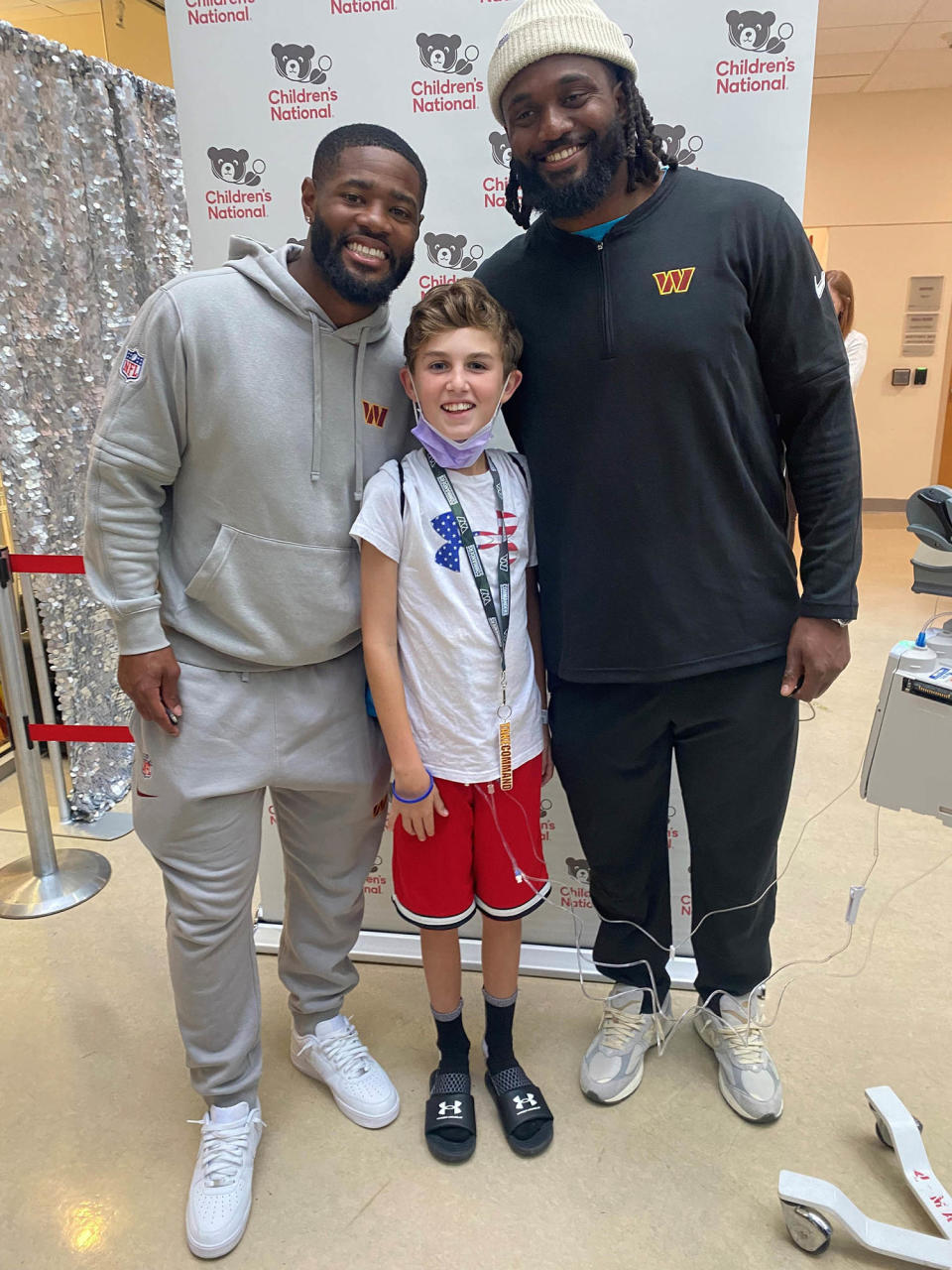While on summer vacation 2023, Landon Motter, then 11, stepped out of the go-kart and felt an aching in his left hip.
“He’s like, ‘It hurts a little bit,’” Landon’s dad, Blake Motter, 33, of Gaithersburg, Maryland, tells TODAY.com. “I was like, ‘You’re growing. … Those carts are a little small. Give it some time.’”
But Landon’s hip pain continued through the start of school. Soon, he was waking up and crying in the middle of the night. After numerous doctors’ appointments, the family learned why: Landon had Stage 4 non-Hodgkin lymphoma.
“I was completely devastated,” mom Courtney Anderson, 32, of Clarksburg, Maryland, tells TODAY.com. “Hearing the word cancer, your mind just completely goes blank. I’m like, ‘Oh my gosh, what is his life going to look like after this? Is he going to survive?’”
Intensifying hip pain
When the 2023-2024 school year began, Landon started soccer practice again, and the pain he first experienced over the summer returned in a serious way. Soon, he was limping.
“There was one game that we definitely both noticed that he was favoring one side,” Anderson says. “We’re like, this is weird — the fact that this has been a couple months now and he still seems to be very much in pain.”


At night, he’d wake crying because the aching hurt so intensely.
“We were giving him Motrin basically around the clock. As soon as it would wear off, he would be crying,” Anderson says. “Once he started waking up in the middle of the night when his Motrin would wear off, we were like, ‘This is definitely more than growing pains. There’s no reason why he should be awoken from his sleep from that type of pain.’”
While Landon’s pediatrician thought growing pains were to blame, his parents pursued other opinions. Motter took Landon to a sports medicine doctor, who conducted X-rays that did not find any problems with his bones or muscles. That doctor referred Landon to Children’s National Hospital in Washington, D.C., where Landon met with several doctors in various departments looking for a diagnosis.
Landon also visited an oncologist, who took blood tests that came back as normal. They family felt relieved. But his pain continued, and his family followed up with a rheumatologist, who ordered a bone biopsy, which revealed that Landon had Stage 4 non-Hodgkin lymphoma.
“We went through like five to seven different doctors until we did the bone biopsy,” Motter says. “(It was) just absolutely devastating. It’s tough. When you hear cancer, you just immediately assume your kid’s going to die.”
Landon struggled when he learned he had cancer.
“He started crying and he was very upset,” Anderson says. “We definitely had to talk him down and really stay positive about it, explain everything that was going to happen, and this is just a bump in the road.”
While his parents felt scared, too, they knew how important it was for them to speak up for Landon with his doctors. They also wanted to completely understand his care so they could help him navigate his treatment.
“The only thing that we could do was just be his advocate and be as positive as possible,” Anderson says. “You have to bring it down to a child’s level of explaining what this actually means.”


Landon underwent six cycles of chemotherapy, and for each, he stayed in the hospital at least five days.
“For those five days, he had chemo every single day at various points throughout that day,” Anderson says.
Being confined to the hospital often made Landon feel “stir crazy,” but he never complained. “He just knew this was something he had to do in order to save his life,” Anderson says.
While he lost his hair following his first round of chemotherapy, he exhibited few other side effects. In fact, his parents felt impressed that soon after his first round of chemotherapy, his hip pain vanished.
“He had so much energy to get out and go live his life during all this treatment,” Motter says. “We would have to be like, ‘You can’t play tackle football with your friends.’”
Landon finished chemotherapy in the spring with no evidence of disease. So far, he’s been enjoying being a kid.
“He’s really just living a typical 12-year-old life right now. He’s still very much involved it sports. He’s doing soccer,” Anderson says. “He’s planning to do football. Really, for Landon, this was just a bump in the road, and physically he’s feeling great.”
Non-Hodgkin lymphoma
Landon had a type of non-Hodgkin lymphoma called anaplastic large cell lymphoma, Dr. Hannah Kinoshita tells TODAY.com.
“A lymphoma is a cancer of the lymphoid tissue,” Kinoshita, a pediatric oncologist in the Center for Cancer and Blood Disorders at Children’s National, explains. “The lymph nodes that you have in your neck and in various parts of the body … can be overtaken by tumor cells and grow and become a mass or a tumor.”
Chemotherapy remains the preferred treatment for the cancer Landon had, which is the third most common type of cancer found in children and adolescents, she notes, though anaplastic large cell lymphoma can also occur in adults.
“The specific type of lymphoma that Landon has accounts for about 10-15% of those lymphomas in children,” Kinoshita says.


Anaplastic large cell lymphoma often presents in later stages, such as Stage 3 or 4, but still Stage 4 patients can be in remission, like Landon is.
“Fortunately, kids are a lot more resilient to therapy for the most part than adults and can often tolerate more intensive treatment regimen,” Kinoshita says. “The most predictive part for Landon is how he responded to therapy and how he was able to get into remission with chemotherapy.”
Symptoms of lymphomas include:
While some of these symptoms are more commonly associated with other ailments, such as respiratory infections or even growing, Kinoshita says parents should be mindful of apparent changes in their child’s health.
“You know your child the best, and you are able to differentiate between some of the more common aches and pains and something that might be more worrying to you,” she says. “In those situations, it’s really important to be in close contact with your (child’s) primary care doctor and raise those concerns.”
Back to school
Landon finished chemotherapy this past spring and rung the bell, marking the end of his treatment. He undergoes regular screening to make sure he remains cancer-free. For seventh grade, Landon returned to the classroom and has been enjoying time with friends.
“He’s very teenager-like,” Anderson says. “As much as that is a very hard stage to go through, Blake and I are definitely thankful that he’s moving past his cancer diagnosis.”
Motter says he hopes that Landon’s story gives hope to other families with children who have pediatric cancer.
“We were able to go through something like this, and come out on the other end,” he says. “We should be helping and bringing awareness and doing everything we can so that other families don’t have to go through the same things and hoops and peaks and valleys that we went through with their children.”


Anderson encourages other parents not to ignore their gut feelings.
“It’s also really listening to your parental instincts,” she says. “Landon was a happy, healthy, active 11-year-old and never in our wildest dreams did we think that he would receive this sort of diagnosis.”
This article was originally published on TODAY.com
